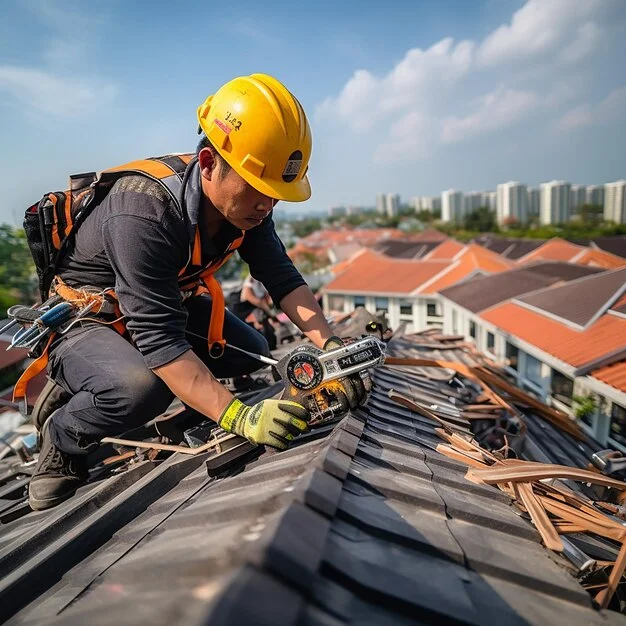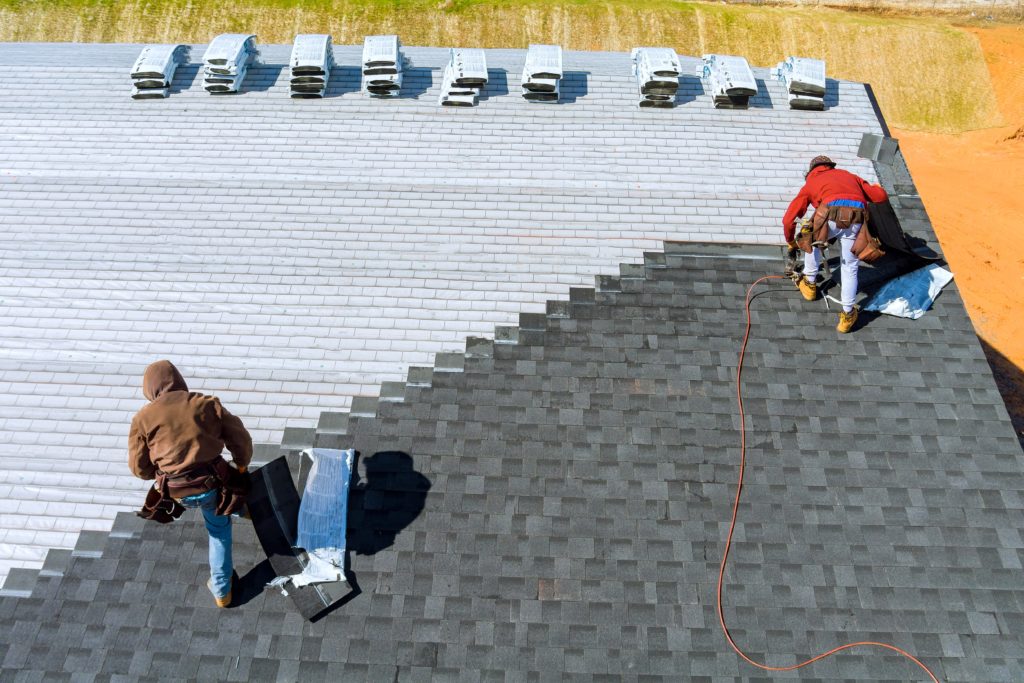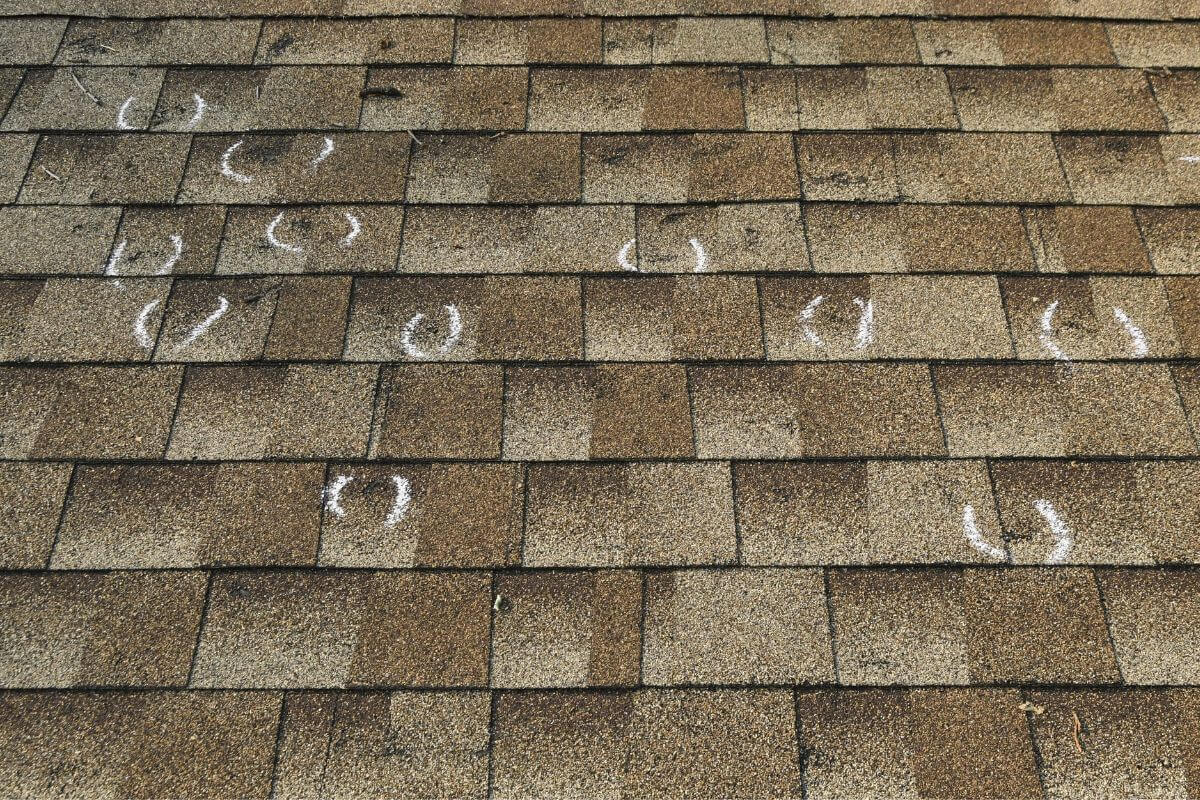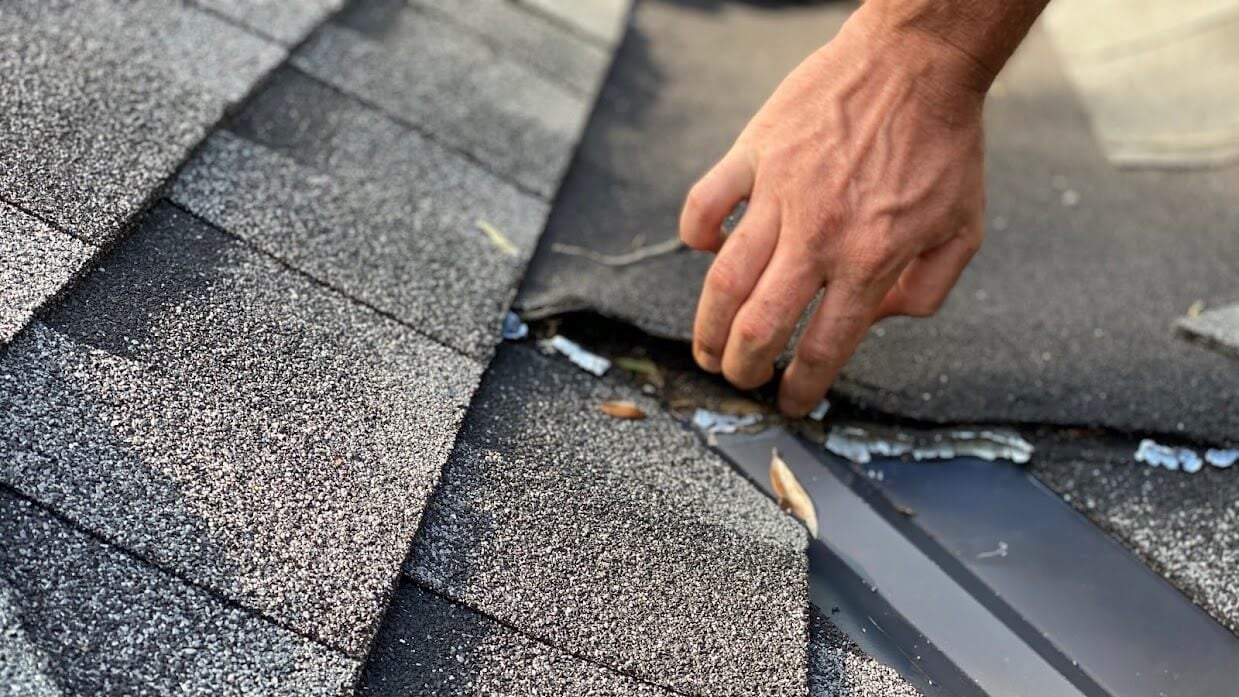If you’re looking for how to choose the right roofing contractor, this guide provides essential steps to find a reliable, skilled professional for your roofing needs. We’ll cover everything from initial research to evaluating experience.
Key Takeaways
- Understand your roofing needs and assess the condition of your roof to communicate effectively with potential contractors.
- Research local roofing contractors to benefit from their familiarity with regional codes and quicker response times.
- Verify licensing and insurance of contractors to ensure compliance, accountability, and protection against potential liabilities.
Understand Your Roofing Needs
Before you start searching for a roofing contractor, it’s important to understand your specific roofing needs. Start by assessing the condition of your existing roof through a detailed inspection. Look for visible signs of roof damage such as water stains, missing shingles, and leaks, which are clear indicators that immediate attention is required.
The age of your roof plays a significant role in determining whether you need roof repair or a full replacement. Roofs older than 20 years often need replacing rather than just repairing. If you’re unsure about the necessary roofing work, consulting a professional roofing contractor can provide an accurate assessment. This step eliminates guesswork and ensures you’re making informed decisions about your roofing project.
Knowing your roofing needs helps you communicate effectively with potential contractors, making it easier to find a professional who can address your situation. This foundational step prepares you for a successful project and leads you to the next phase: researching local roofing contractors.
Research Local Roofing Contractors
Before:
Once you’ve identified your roofing needs, the next step is to research local roofing contractors. Hiring local contractors has numerous benefits, including quicker response times for emergencies due to their proximity. Moreover, being part of the same community fosters accountability, enhancing their commitment to quality work. Local contractors are also familiar with regional building codes and specific climate challenges, ensuring compliance with local regulations and the use of suitable roofing materials.
After:
Once you’ve identified your roofing needs, the next step is to choose a roofing contractor and research local roofing contractor, local roofing contractors, and a right roofing contractor or a professional roofing company.
Hiring local contractors has numerous benefits, including:
- Quicker response times for emergencies due to their proximity
- Enhanced accountability, fostering their commitment to quality work
- Familiarity with regional building codes and specific climate challenges, ensuring compliance with local regulations and the use of suitable roofing materials
Local roofing contractors possess in-depth knowledge of the local architecture and climate conditions, which can be invaluable when recommending the best roofing materials for your home. They are more likely to understand and cater to the unique needs of your area, making them a reliable choice for your roofing project.
Use search keywords like ‘roofer near me’ or ‘roofing contractor in (your town)’ to find a reputable roofing contractor and other local contractors. Additionally, asking for references from friends and family can provide trustworthy recommendations. Combining these methods ensures you compile a list of potential roofing contractors who are well-suited to meet your needs.

Verify Licensing and Insurance
Checking the licensing and insurance of potential roofing contractors in the roofing industry is a critical part of the selection process. Hiring certified roofers ensures adherence to manufacturer standards and ongoing education in the field. Licensing also helps in compliance and accountability, which are essential for high-quality workmanship.
General liability insurance protects your home if a contractor damages it while completing work. In addition, workers’ compensation insurance indicates a roofing company’s commitment to employee safety and ethical practices. Both types of insurance are crucial for protecting homeowners from potential liabilities.
Check with your state’s roofing licensing board to verify a contractor’s licensing. This step not only confirms that the contractor is legally permitted to perform roofing work but also reassures you of their commitment to industry standards and practices. A licensed and insured contractor offers peace of mind and protection throughout your project.
Evaluate Experience and Expertise
A contractor’s experience and expertise are key indicators of their ability to deliver quality work. Experienced professional contractors have dealt with diverse roofing challenges, which equips them with a broad skill set for handling various roofing projects. This experience ensures quality installation of materials and minimizes the likelihood of errors.
A long business history often correlates with more experience and reliability. Contractors with decades of experience are less likely to make mistakes and more likely to provide high-quality workmanship. When evaluating potential contractors, inquire about their specialties and ensure they have experience with the specific roofing materials relevant to your property.
Accreditations from reputable organizations and visual proof of past work, such as photographs or site visits, reveal a contractor’s level of craftsmanship and reliability. Thoroughly evaluating a contractor’s experience and expertise helps you confidently choose a professional who meets your needs.
Check References and Reviews
Verifying references and reading reviews are essential for evaluating a contractor’s reliability and quality of work. Contacting previous clients allows you to gather firsthand insights into the contractor’s performance. A former customer’s willingness to hire the contractor again is a strong endorsement of their work.
When speaking with references, ask about the number of projects completed, whether deadlines were met, and if the contractor stayed within budget. Additionally, inquire about the contractor’s communication and professionalism throughout the project. These questions help you gauge the contractor’s reliability and transparency.
Reviews on third-party sites and social media provide additional insights into a roofer’s customer service and reputation. Customer reviews provide essential insights into the quality of work performed and help identify any red flags. This comprehensive approach ensures you choose a contractor with a proven track record of satisfied customers.

Obtain Multiple Estimates
Gathering multiple estimates allows you to compare quotes and avoid being misled about the need for a new roof. Asking each contractor the same questions helps you compare their responses effectively. Detailed breakdowns of material and labor costs in estimates help compare the quality and pricing effectively.
When comparing estimates, consider the professional demeanor and thorough communication from contractors during the initial visit. Red flags to disqualify an estimate include a lack of willingness to review line items or hidden fees.
Be cautious of low bids, as they may indicate cost-cutting that could lead to poor quality work. Balancing price with reputation ensures you choose a contractor who offers both value and quality.
Ask About Warranties
Asking about warranties provides peace of mind regarding the quality of work performed on your roof. A good warranty ensures long-term protection for your roofing investment. Estimates should clearly outline warranty details, including both product and workmanship guarantees.
Ensure the contract specifies what warranties cover, including materials and labor. Some companies, like Rhino Roofing, offer extended warranties for additional protection beyond standard offerings, such as a lifetime installation guarantee.
Inquiring about a workmanship warranty shows the contractor’s confidence in their quality of work. Robust warranties are a strong reassurance of the contractor’s commitment to excellence.
Review the Contract Thoroughly
Reviewing the contract thoroughly before signing is essential to avoid misunderstandings and ensure all expectations are met. A roofing contract should include the scope of work, materials, payment terms, timeline, and cleanup responsibilities. Establishing a timeline for the roofing project is crucial for managing expectations and preparing for potential delays.
Avoid cash deals as they are not traceable; instead, use documented payment methods to protect both parties. The contract should specify that the contractor is responsible for cleanup to ensure all debris is removed post-project.
Reviewing the contract thoroughly helps you make an informed decision and avoid surprises during the project.
Consider Financing Options
Financing options allow homeowners to manage payments over time, making costly roofing projects more affordable. Loans with zero percent financing for the initial period help homeowners avoid upfront payments while undertaking roofing projects.
Many roofing contractors offer flexible payment plans, which can vary in terms and interest rates. Talk to your contractor about financing options to manage project costs effectively. This approach ensures you can undertake necessary roof work without financial strain.
Prepare for the Roofing Project
Preparation involves several practical steps to ensure a smooth roofing process. Clear the area around your home to facilitate construction and make debris visibility easier for clean-up. Contractors should ensure that tarps are placed to protect landscaping and driveways from debris during the roofing job.
Homeowners should remove or secure items like TVs and artwork from walls to protect them from vibrations and dust during the roofing process. Communicate with your contractor about job site access and safety measures before the work begins.
These preparations help minimize disruptions and protect your property during the roofing project.
Summary
Recapping the key points, understanding your roofing needs, researching local contractors, verifying licensing and insurance, evaluating experience and expertise, checking references and reviews, obtaining multiple estimates, asking about warranties, reviewing the contract thoroughly, considering financing options, and preparing for the roofing project are all critical steps in choosing the right roofing contractor.
Making informed decisions based on these steps ensures a successful roofing project that enhances your home’s durability and curb appeal. A well-chosen contractor not only provides quality roofing but also peace of mind for years to come.

Frequently Asked Questions
Why is it important to understand my roofing needs before contacting contractors?
It is crucial to understand your roofing needs prior to contacting contractors, as this enables clear communication and ensures you receive accurate quotes and tailored solutions for your specific issues. This preparedness ultimately leads to a more satisfactory outcome for your roofing project.
How can I find reputable local roofing contractors?
To find reputable local roofing contractors, use search terms like “roofer near me” and seek recommendations from friends and family. This ensures you choose experienced professionals familiar with local building codes and conditions.
What should I look for in a roofing contractor’s insurance coverage?
You should verify that the roofing contractor has general liability insurance to safeguard your property from damages, along with workers’ compensation insurance to cover their employees. This coverage is essential for protecting you from potential liabilities during the project.
Why is it necessary to obtain multiple estimates from different contractors?
It is essential to obtain multiple estimates from different contractors to compare costs, understand the scope of work, and ensure you receive high-quality workmanship. This approach protects you from being misled and allows for a balanced evaluation of price and contractor reputation.
What are the benefits of asking about warranties when choosing a roofing contractor?
Asking about warranties when choosing a roofing contractor ensures peace of mind regarding the quality of work and materials, while also providing long-term protection for your investment. This indicates the contractor’s confidence in their workmanship, establishing a foundation of trust.





